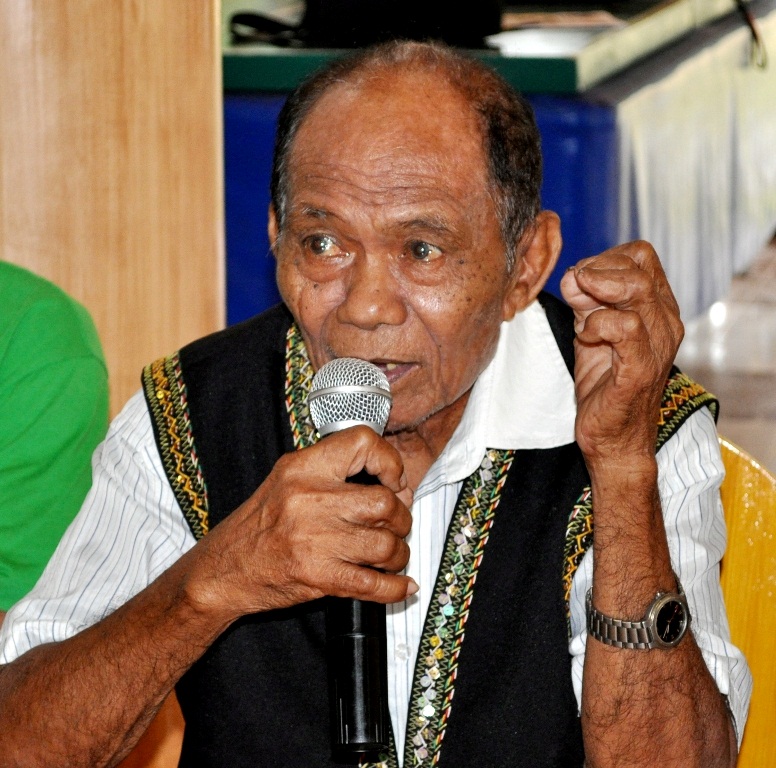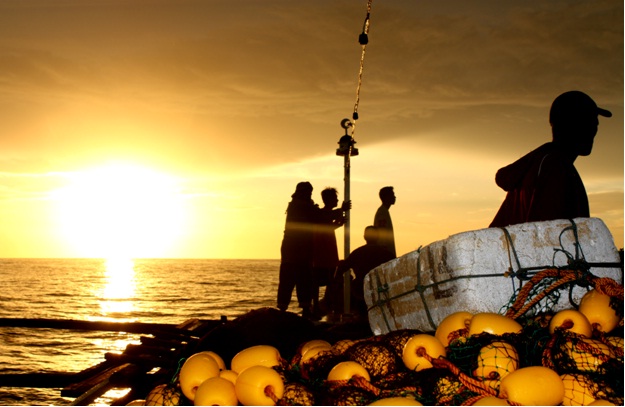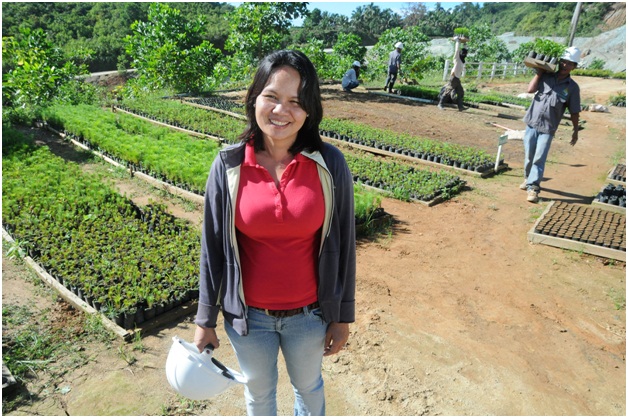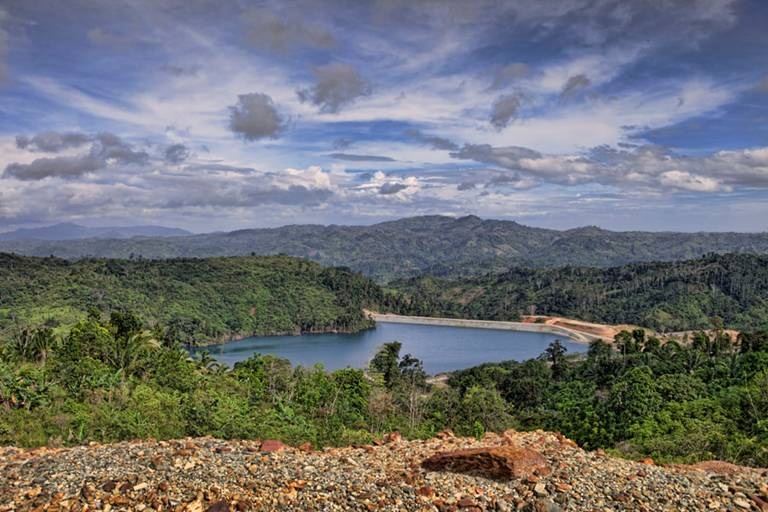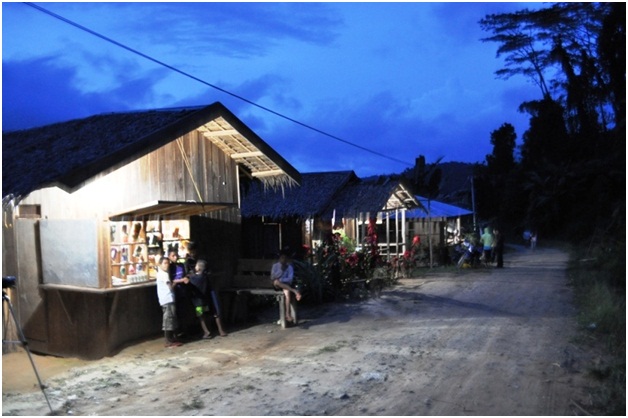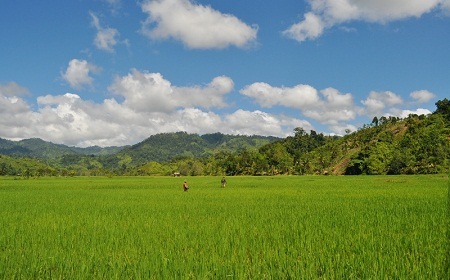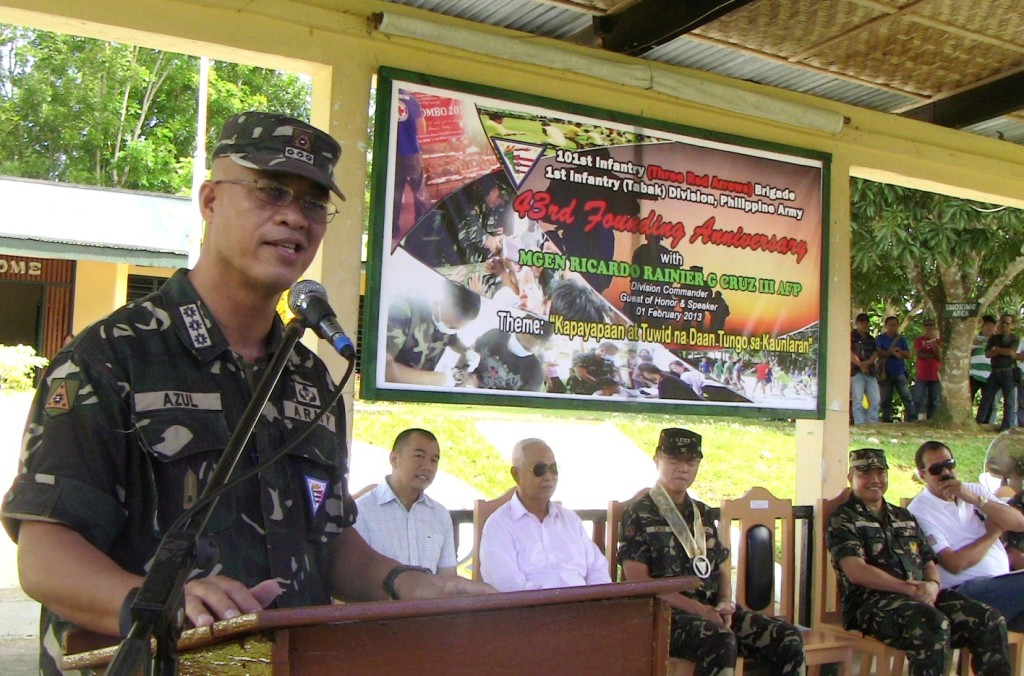TVIRD sponsors Bio-Intensive Gardening Seminar in Tamarok
Long before even beginning its exploration drilling activities in a far-flung poverty-stricken village in Southern Philippines, a mining company has begun sowing the seeds of sustainable development in a BIG way – Bio-Intensive Gardening – in Tamarok, Jose Dalman town, Zamboanga del Norte. Just recently, TVI Resource Development (Phils.) Inc. (TVIRD) sponsored a BIG Seminar in the community, in the hope of providing alternative know-how for food source and livelihood to the predominantly Subanen community folks.

Dr. Sergio Andolero, Director of the Agricultural Training Institute of Zamboanga lectures on Bio-Intensive Gardening before Subanen indigenous people in Tamarok. The technology promises available food source for poor families in this remote Mindanao village in Southern Philippines.
TVIRD, through its Community Relations and Development Office (CReDO), sought the assistance of experts in BIG technology from the Agricultural Training Institute (ATI) of Zamboanga, led by its director, Dr. Sergio Andolero, who conducted the Seminar with equally able lecturers, Alexander Carangcarang, ATI assistant director for Operations; and Hermenegildo Pampilo, ATI Agriculturist II.
BIG, an agricultural technology in growing crops developed by the International Institute for Rural Reconstruction, uses double-dug raised beds, intensive planting, composting, and companion planting. First introduced in Negros Occidental at the height of a grave economic crisis there in 1984, BIG has since raised food availability for Negrenses, significantly lowering the malnutrition rate in the province from 40% to 25% in just two years.
Some 50 enthusiastic participants, mostly Subanen lumad (indigenous people) attended the Seminar. The lecturers provided the local elders, women, and youth citizens of Tamarok with writing and reading materials as aides for the lecture.
The ATI officials discussed the BIG way of planting seeds of such vegetables as tomato, eggplant, and mongo beans. Vegetable diseases, treatment, and control were also covered during the lecture. Andolero talked about the varieties of vegetable seeds, land preparation, required spacing for different seeds, as well as an overview on organic fertilizers. Carangcarang, for his part, discussed sweet corn production and soil suitability factors. He recommended a per site soil analysis to enable identification of necessary soil treatments or fertilizers for better vegetable production.
The BIG agricultural process is known to help nourish the land through nutrient cycling, diversified cropping, and deep-bed preparation on small-scale plots of areas from 200 to 500 sq. feet. Bio-intensive Gardens contain a diverse range of indigenous crops, which minimizes the opportunities for pest outbreak while preserving indigenous seed varieties. BIG can also provide the poor families of Tamarok with food and non-food resources, which these families normally have to buy.
TVIRD CReDO will follow through this program for the Lumad by acquiring seeds for them and by providing them with other BIG needs.
The tribal council of elders of Tamarok has overwhelmingly agreed to allow TVIRD to conduct exploration activities in their ancestral domain claim. The consent is contained in the final draft of a Memorandum of Agreement (MOA) that spells out, among others, the terms and conditions for the Company’s proposed exploration project in the area. (Raymond Acopiado)

